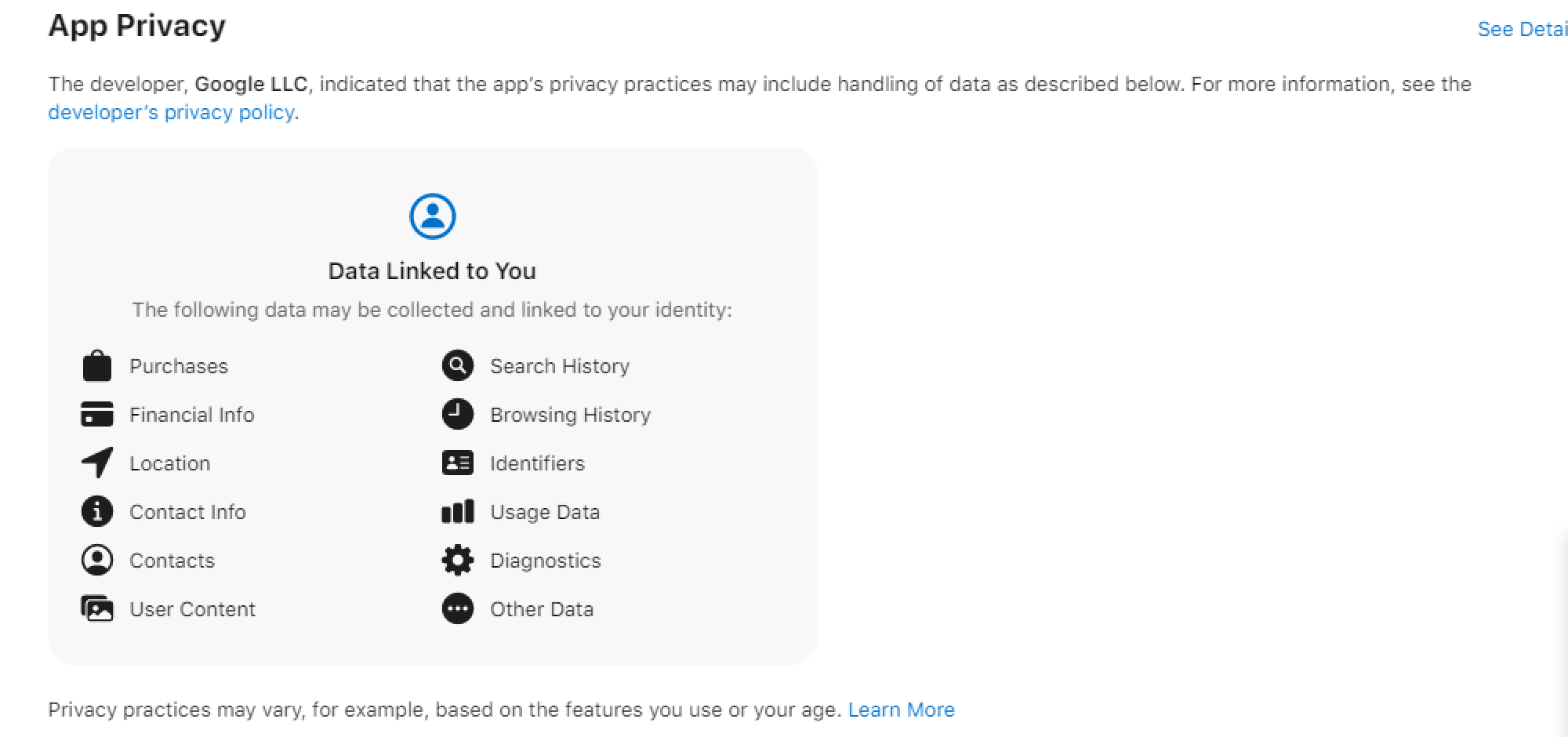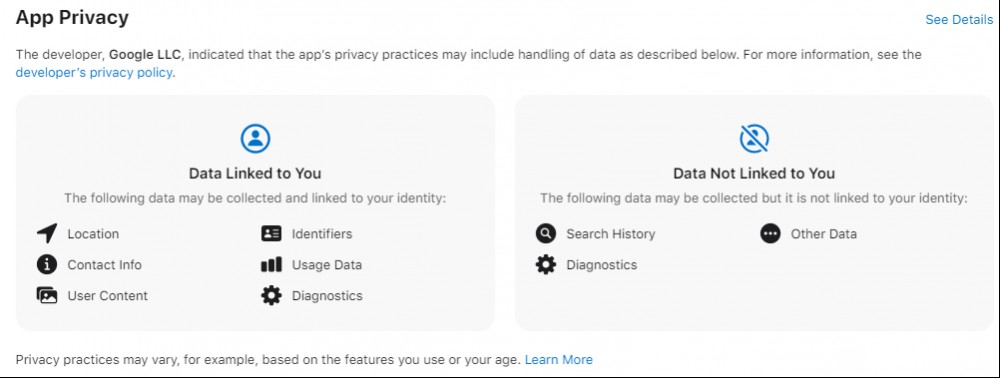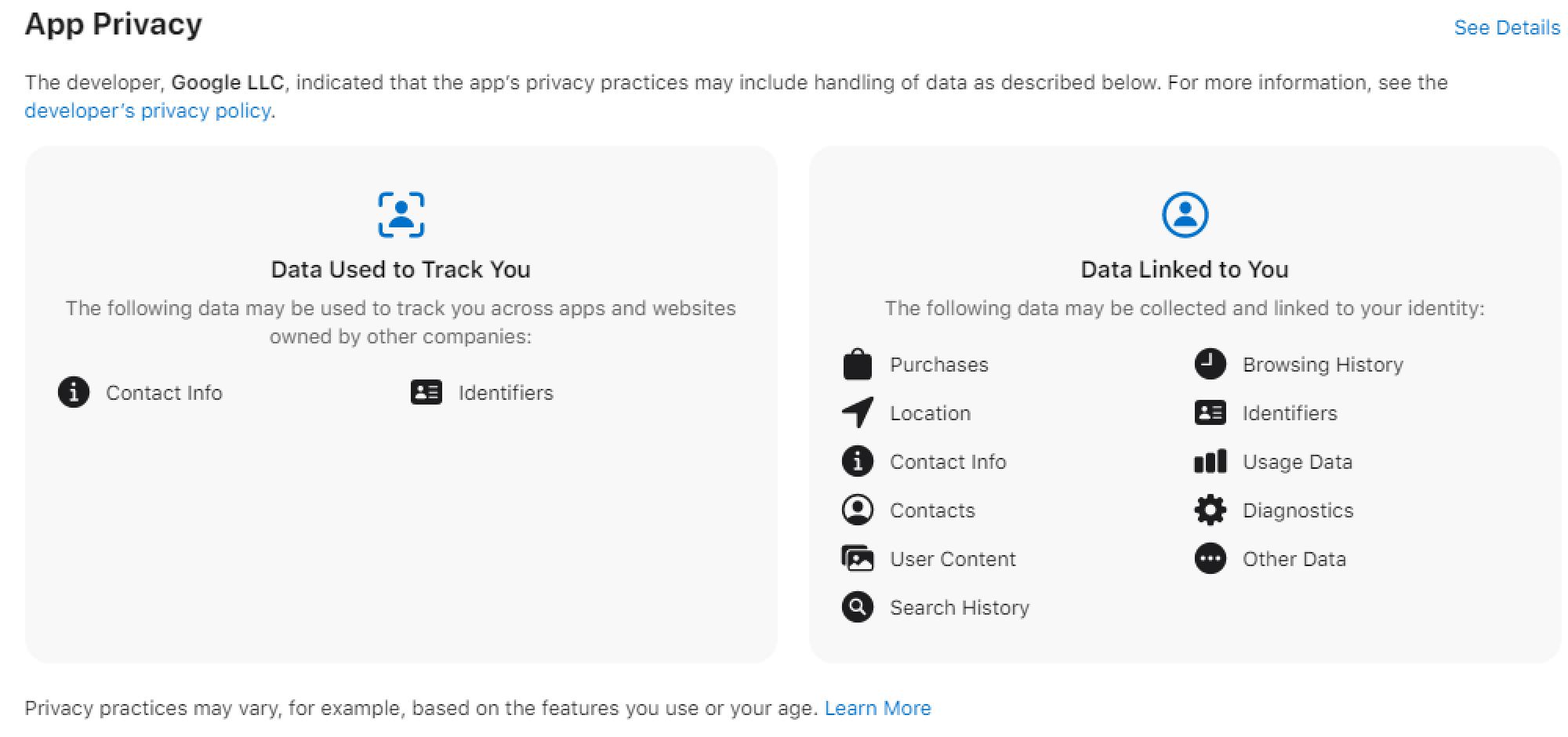How to Register to Vote Online
With the November election fast approaching, you need to prepare how and when you will vote. The simplest way to be turned away from the polls is to h

Apple recently updated its App Store and iOS privacy policies to force app developers to be more transparent about their data collection practices. As a result, users have a little more insight (and, ideally, control) over what data various companies can track—and how. Even giants like Google.
Users can view the information an app tracks in the new “App Privacy” section of its App Store page. And because of these changes, we finally know how much data Google collects from some of its iOS apps. Spoiler: It’s a lot.
Google hasn’t updated the App Privacy section for all of its app store listings yet, but here’s a quick snapshot of the few that now list the data they track.



Like we said, Google tracks a lot of information, but thanks to Apple, we can now see most of the data it scoops up (we’re still not sure what “other data” covers). Hopefully, popular services like Google Search, Google Maps, Google Photos, Gmail, and Chrome will be updated soon, too.
This might be a rude awakening for some, particularly those who assumed Google’s iOS apps were less info-greedy than Android’s. The fact is, all companies collect data: Facebook tracks you through its website and apps, including Instagram and WhatsApp, as do Amazon, Microsoft, Twitter, TikTok, Snapchat, Apple itself…the list goes on.
That said, Google is one of the more aggressive scoopers of information, and its database is one of the largest. While Google doesn’t sell personal information directly to advertisers, third-party companies pay a lot of money for Google’s help delivering targeted ads to more potential customers.
It feels exploitative, but using your data to sell ads is different than stalking your every move for personal reasons. However, data breaches happen all the time, and your data can fall into the wrong hands if companies aren’t storing it safely.
But there are ways to mitigate how much data these companies ultimately save, hopefully reducing the privacy risks.
First, use the App Store’s new data-tracking information to make informed decisions. Don’t download apps that cross your personal “privacy threshold.” You can also disable certain tracking permissions when an app is first installed, and adjust permissions later in the iOS settings. This won’t prevent apps from collecting data, but it makes the data collected more anonymous.
When it comes to Google apps specifically, there are a few more options available:
Turn off all activity tracking in your Google account settings, or set your data to auto-delete whenever possible.
Disable Gmail’s “Smart” features that track your data.
Don’t use your Google account to sign in to third-party apps or websites.
Turn off your phone’s GPS when you aren’t using it.
Implementing these strategies will pare down how much personal info Google stores, but it won’t stop all tracking. To do that, you need to use different apps and services instead—and hope those companies are tracking less data.
It’s difficult to cut Google out of your life entirely, but iOS and Mac users can create more distance than Android, Chrome OS, or even Windows users. Apple has first-party alternatives to most Google services. These apps still track some data, but Apple has a better privacy policy—relative to Google’s practices, anyway. Plenty more are available through third-party apps. To get you started, check our guides on alternatives to Chrome, Gmail, Google Search, and Google Photos.

With the November election fast approaching, you need to prepare how and when you will vote. The simplest way to be turned away from the polls is to h

Ah, finally. It’s time for Apple’s latest operating systems for iPhone, iPad, Apple Watch, and Apple TV to release to the masses. Public betas, be dam

Want custom backgrounds for your many WhatsApp conversations? That might sound like clutter, but adding wallpapers to your chats gives you a great vis

For those who haven’t yet splurged on a fancier setup for recording videos at home, know that your smartphone’s camera (ideally coupled with a better

Google is testing a new Read Later feature that lets users save articles and other links they come across and want to, well, read later. Saved links a

iOS 14.5 should be right around the corner, judging by the four developer betas we’re at right now. At this point, I wouldn’t begrudge anyone who want

Chrome desktop users have long been able to outfit the browser with third-party extensions that track prices and help you find the best deals, but tho

Alt+Tab is one of Windows 10's best shortcuts. It allows you to not only switch between apps, but to see a preview of all your open windows so you can
We are a comprehensive and trusted information platform dedicated to delivering high-quality content across a wide range of topics, including society, technology, business, health, culture, and entertainment.
From breaking news to in-depth reports, we adhere to the principles of accuracy and diverse perspectives, helping readers find clarity and reliability in today’s fast-paced information landscape.
Our goal is to be a dependable source of knowledge for every reader—making information not only accessible but truly trustworthy. Looking ahead, we will continue to enhance our content and services, connecting the world and delivering value.